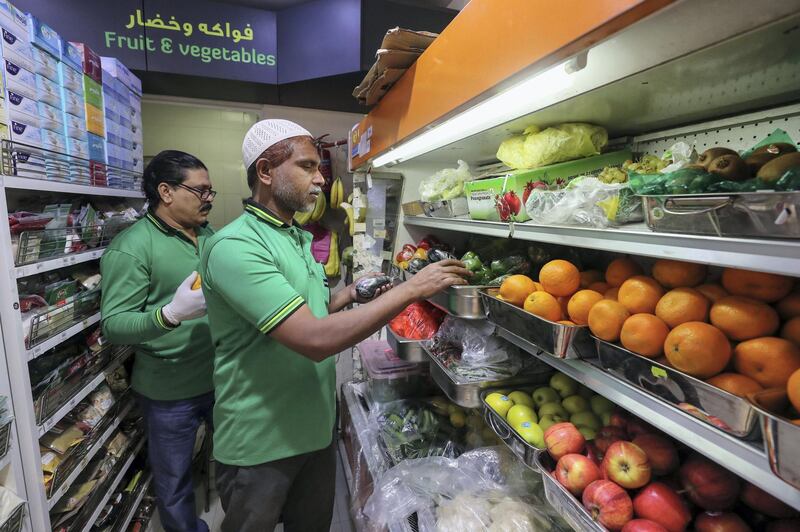More than a week after the introduction of VAT, reactions among Abu Dhabi's corner shop owners have been mixed.
Half of the eight shops visited by The National on Monday said sales had come down in the first week. The rest said the situation was the same or it was too early to say since the five per cent tax was added to the price of goods and services.
A week ago, The National visited a selection of the capital's corner shops to gauge the mood ahead of the landmark move by the UAE to bring in VAT. Mohammed Shameam, a manager of one Baqala in the Al Nahyan area, had speculated that it could precipitate a slowdown in sales. On Monday, Mr Shameam said there had been a small impact over the past week.
“Everybody is talking about it. Cigarettes and [soft drinks] have already gone up in price. Some people now say: how can they afford another 5 per cent?” he said.
“Some salaries have not increased and expenses are going up so they are saying that. But largely it’s OK.”
At another corner shop close to Al Mariah Mall, the manager who did not wish to be named, said business was down over the past week. “Yes, of course. There has been less business,” he said.
“People are buying less and it’s not like before. Instead of buying two litres of milk, people are buying one litre,” the manager said.
_______________
Read more:
[ Abu Dhabi's corner shops brace for the introduction of VAT ]
Sheikh Mohammed: 70% of VAT revenue to be used in local projects
_______________
He also said this was happening across the board. For example, some people were now purchasing single-serving sachets of coffee instead of jars.
“People know about it and the reaction is mixed. The tax is good for the country though,” he said.
VAT came into force on January 1. And its introduction is expected to boost revenues by as much as Dh12 billion in the first year alone, according to the Minister of Economy. School fees, healthcare, residential rent and public transportation are currently exempt. However, some analysts have speculated that it could result in an increase in the average cost of living as much as 2 per cent.
Two other corner shops in the Khalidiyah area also reported that sales were slightly down.
“It’s a bit less busy than usual,” said one shop worker, who also did not want to be identified. “Of course, everybody is talking about it.”
Over the past few days, there have been complaints about rounding up of prices. But Abu Dhabi's Department of Economic Development clarified on Thursday that shops in the emirate were allowed to round up the cost of products by 20 fils. Many of the smaller shops are rounding up or down on a case by case basis, and as The National reported on Sunday – most of the larger chains have a policy of rounding up or down to the nearest 25 fils, 50 fils and 75 fils.
The Suhaila baqala close to the Russian embassy was also surveyed by last week. There, manager Mohammed Jamal predicted VAT could impact sales for the first month or two but that people would adapt.
“All the customers know about the VAT,” he said on Monday.
“There has been no impact on sales so far. In rare cases, some lower income workers have had problems and people are asking for their invoices. But generally there are no problems. No complaints. It’s the law of the Government.”
Sheikh Mohammed bin Rashid, Vice President and Ruler of Dubai, said on Sunday that 70 per cent of VAT takings would be reinvested in local services. And Mr Jamal is hopeful that his business could benefit from the tax.
“We are hoping now that perhaps the business will grow because the Government might bring new projects. People will come for jobs and there will be good business in the future.”







